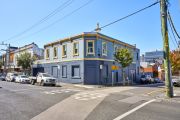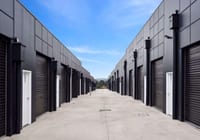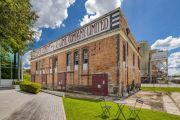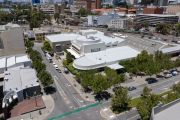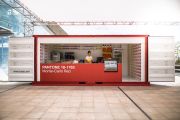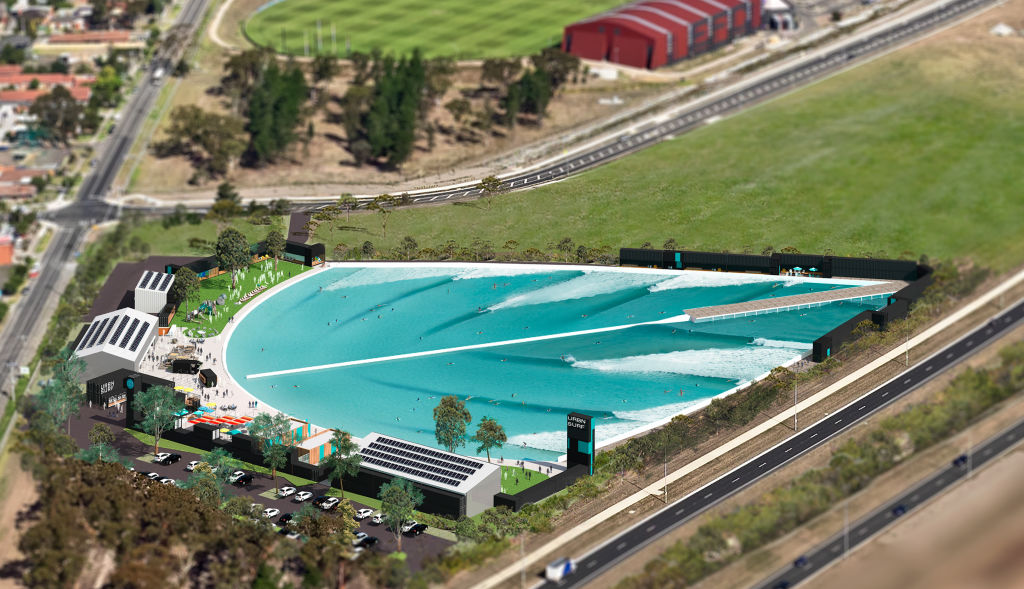
How Melbourne airport helped get Australia's first surf park off the ground
The founder of Urbnsurf, Australia’s first surf park that opens this summer in Melbourne, believes that their airport location simplified the development and planning processes required to bring the seven-hectare site to life.
The $40 million, MCG-sized lagoon, on Airport Drive in Tullamarine, uses a Wavegarden Cove wave generator that will produce up to 1000 “ocean-like” waves for surfers every hour. The park will also have a surf academy, landscaped outdoor spaces, hot tubs, an all-day restaurant with surfing views – run by The Three Blue Ducks – and a surf shop, all minutes from Melbourne Airport.
Founder and executive director of Urbnsurf Andrew Ross told Commercial Real Estate, “We like airports. From a regulatory and planning perspective, they’re actually pretty good places to try developments.”
Mr Ross said the company had been “sniffing around” Melbourne for a year for potential sites that could meet their extensive requirements when, in 2015, Melbourne Airport reached out to them. “It’s incredible,” said Mr Ross. “It was just six months from first meeting to having a leased site with planning approval.”
Gary Smith, a spokesperson for Melbourne Airport, said they were pleased to host Urbnsurf, and that they hoped to attract further similar-minded tenants.
“Our vision for this precinct is one where we can be a stable, long-term home to the types of experiences and activities that our surrounding community can benefit from and embrace. It’s our goal to make the whole airport estate contribute to our presence in the community, and to do it in a way that Melbourne can feel a sense of ownership about.”
Mr Ross said the airport location did have some development complexities. As Melbourne Airport is on Commonwealth land, under the Airports Act 1996 it is subject to Commonwealth planning approvals and procedures. Developments valued at more than $20 million built on Melbourne Airport, or those which have “a significant impact on the environment or local community”, require a Major Development Plan (MDP).
However, despite requiring a MDP, Mr Ross said, “We have as our regulator, and as our landlord, the same entity – Melbourne Airport – which does provide for some streamlining.”
Unlike the ease of securing a location, it was a little harder to pitch the privately-owned business to mostly Australian-based investors.
The business has a new business model, and uses brand-new technology “that had never been built to scale” before. “It was a challenge, “ he said, “but our shareholders bought into the vision of what this could really be.”
For Mr Ross, establishing the surf park was a matter of personal ethical necessity. After 25 years working in the “the unholy trinity” – as a lawyer, executive banker, and an oil and gas company executive – he realised that, “I had to do something to redeem myself, otherwise [when I die] I’m going south rather than north”.
The surf park reflects the founders’ and customers’ “deep-green core” said Mr Ross. “We’re not going to be successful unless we remain truthful to those values.”
The park will have solar panels throughout to offset the power usage, and they are searching for a renewable energy provider to secure a long-term supply for the wave generator. Recycled materials, including 18,000 tonnes of recycled concrete material from Melbourne Airport, were used in the construction.
Mr Ross said the “stubbed toes, scarred knees and bloodstains” from the long journey to completion were becoming worth it, now they were close to achieving their aims: to “inspire the progression of modern surfing, but in a way that’s soulful – inclusive, respectful of surfing’s origins, and protective of the ocean.”
